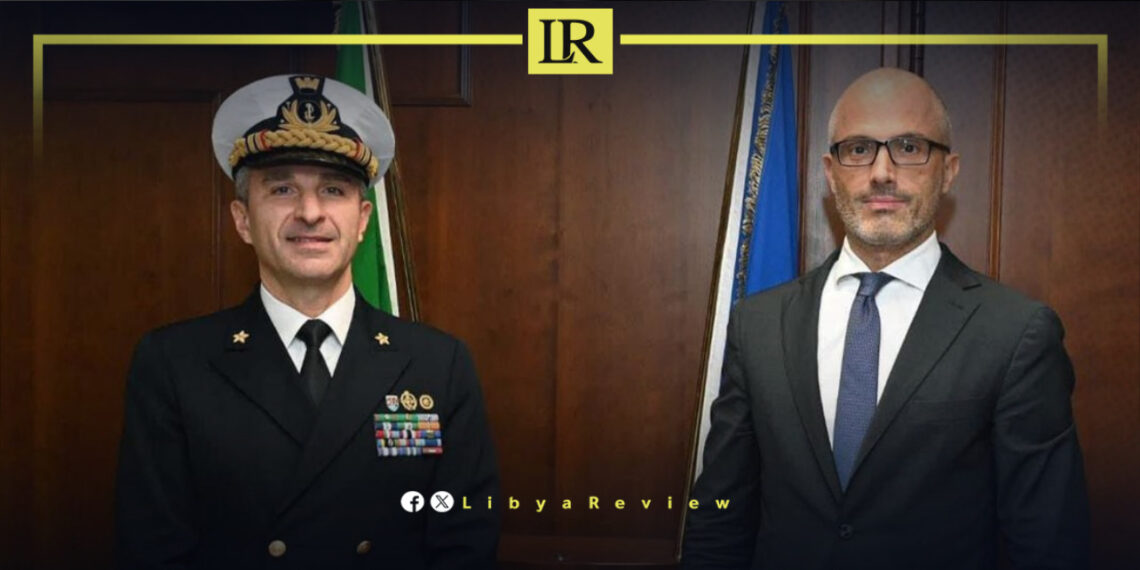On Thursday, the European Union’s Ambassador to Libya, Nicola Orlando, praised Operation IRINI for its significant role in promoting peace and stability in Libya.
During a visit to the EU mission’s headquarters in Rome, Orlando expressed his gratitude to Admiral Valentino Rinaldi, commander of the operation, for the warm reception and highlighted the mission’s vital contributions to regional security.
The ambassador stressed the importance of IRINI’s neutrality in enforcing the UN Security Council Resolution 2292 (2016), along with subsequent resolutions. The operation plays a critical role in implementing the UN arms embargo on Libya, as well as monitoring illicit oil exports and human trafficking activities.
Operation IRINI, launched by the European Union in 2020, plays a central role in enforcing the UN arms embargo on Libya through inspections of vessels suspected of transporting weapons. By ensuring compliance, the operation prevents the inflow of arms that could destabilize the country. It also monitors the illegal export of oil and refined petroleum, safeguarding Libya’s resources from being exploited by criminal networks.
One of the mission’s core mandates is disrupting human trafficking and migrant smuggling networks, which operate across the Mediterranean. Through these efforts, Operation IRINI reduces the flow of irregular migration from Libya into Europe, contributing to both regional security and humanitarian goals.
Ambassador Orlando emphasized that IRINI is ready to expand its mission beyond security enforcement, offering capacity-building programs to help Libyan authorities better manage migration and border control. By training local institutions, the EU aims to equip Libyan officials with the tools necessary to address both security and migration challenges effectively.
This deeper cooperation will strengthen Libya’s ability to handle internal and external challenges, supporting the long-term stability of the region. The ambassador underscored that the partnership between the EU and Libya is essential for achieving shared goals in security and governance.
During the meeting with Admiral Rinaldi, Orlando emphasized the importance of continuous dialogue between Libya and the European Union.
The two leaders discussed the current situation in Libya and explored opportunities to deepen collaboration. Both sides reaffirmed their commitment to peace and stability through enhanced cooperation, recognizing the need to support Libya’s political transition and institutional rebuilding efforts.


